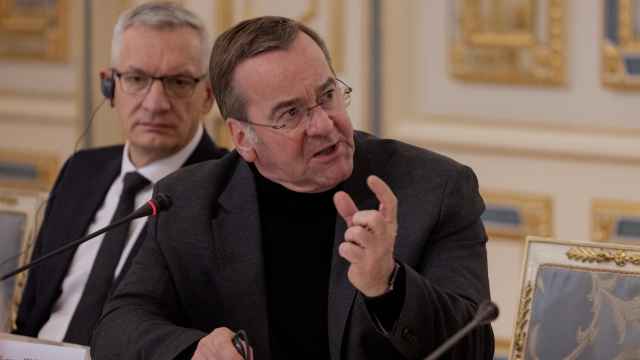Consumer goods maker Unilever is keeping faith in Russia as an important growth market and is ready to plow money into factories and acquisitions there despite a slowing economy.
Unilever Chief Executive Paul Polman said he met First Deputy Prime Minister Arkady Dvorkovich last week and they discussed the Anglo-Dutch company's long-term investments.
"We talked other investments we continue to make to be sure that we grow our business here," he said during a visit to Moscow.
Foreign companies have been reviewing their growth plans in Russia since it annexed Ukraine's Crimea region in response to the overthrow of Ukraine's Moscow-backed president in February, provoking the deepest crisis in Moscow's relations with the West since the Cold War.
The standoff has taken its toll on the economy, which is now close to recession. Russia's government already acknowledged last November that the economy would lag global growth over the next two decades.
Unilever's Russian businesses include cosmetics maker Kalina, ice cream producer Inmarko, dressings maker Baltimor and its own factories producing Knorr soup and Lipton tea.
"Obviously [the Ukraine crisis] affects our business," said Polman. "The ruble is down, the Ukrainian currency is down. It is not helping the economic situation … and there are rules and regulations that have to be rewritten."
"Despite that, we are growing our market share in all our home and personal care businesses … We have a good business in Russia and we do not complain about that."
With many developed economies growing only slowly, Unilever has moved to focus on emerging markets including Russia and has been reviewing its range of global brands. It recently sold Skippy peanut butter, Wishbone salad dressings and Ragu and Bertolli pasta sauces in the U.S.
"You have to pull the weeds sometimes to let the flowers grow," Polman said in an interview.
He said Unilever was "nearly done" with a strategic review that is moving its portfolio away from mature, regional food brands to higher-growth, more profitable personal care brands with global consumer appeal.
"We sold P.F. Chang's and Bertolli frozen food, Wishbone, Ragu — and we buy things like Kalina or Alberto Culver which are in our strategic categories that we have globally."
Russia Sales Growth Slows
Unilever last year announced an upgrade of its cosmetics facility in St. Petersburg, allowing it to double production capacity, and a new industrial water purification facility. It also recently opened a research and development center for ice cream in Tula, south of Moscow.
"We prioritize organic growth, but we also continuously look at good bolt-on acquisitions and we have done some of them here. And we will continue with that strategy," said Polman.
He said Unilever's revenue growth in Russia dropped to a high single-digit percentage about a year ago from double digits but this did not worry him much as long as the company continued to increase its market share.
Unilever said in April it could sell dietary brand SlimFast, concluding its U.S. disposals. But analysts say more could come, such as a disposal of its underperforming spreads business that is mainly in the U.S. and Europe.
Polman said the spreads business, which accounts for around 7 percent of Unilever's sales, was not currently up for sale.
"We are growing market share now in spreads. We know how to run it efficiently … and we generate quite a lot of cash from our spreads business that we then can use to finance the expansion of the emerging markets," he said.
The business includes spreads like margarine, which are suffering in many markets from a consumer shift toward products seen as more natural, such as butter.
He did not rule out smaller disposals in the future.
"Once you have pulled the weeds, there are some other little weeds you have to pull," he said.
A Message from The Moscow Times:
Dear readers,
We are facing unprecedented challenges. Russia's Prosecutor General's Office has designated The Moscow Times as an "undesirable" organization, criminalizing our work and putting our staff at risk of prosecution. This follows our earlier unjust labeling as a "foreign agent."
These actions are direct attempts to silence independent journalism in Russia. The authorities claim our work "discredits the decisions of the Russian leadership." We see things differently: we strive to provide accurate, unbiased reporting on Russia.
We, the journalists of The Moscow Times, refuse to be silenced. But to continue our work, we need your help.
Your support, no matter how small, makes a world of difference. If you can, please support us monthly starting from just $2. It's quick to set up, and every contribution makes a significant impact.
By supporting The Moscow Times, you're defending open, independent journalism in the face of repression. Thank you for standing with us.
Remind me later.





